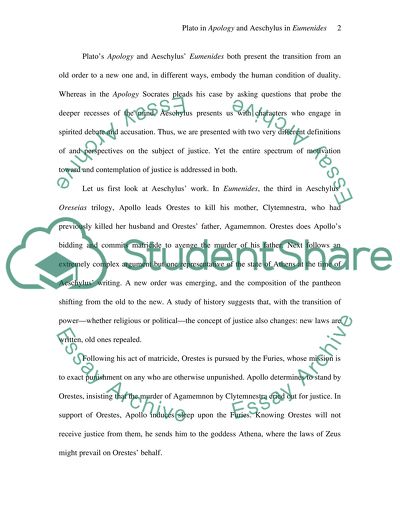Cite this document
(“Plato in Apology and Aeschylus in Eumenides Essay - 1”, n.d.)
Plato in Apology and Aeschylus in Eumenides Essay - 1. Retrieved from https://studentshare.org/miscellaneous/1502899-plato-apology-and-aeschylus-in-eumenides
Plato in Apology and Aeschylus in Eumenides Essay - 1. Retrieved from https://studentshare.org/miscellaneous/1502899-plato-apology-and-aeschylus-in-eumenides
(Plato in Apology and Aeschylus in Eumenides Essay - 1)
Plato in Apology and Aeschylus in Eumenides Essay - 1. https://studentshare.org/miscellaneous/1502899-plato-apology-and-aeschylus-in-eumenides.
Plato in Apology and Aeschylus in Eumenides Essay - 1. https://studentshare.org/miscellaneous/1502899-plato-apology-and-aeschylus-in-eumenides.
“Plato in Apology and Aeschylus in Eumenides Essay - 1”, n.d. https://studentshare.org/miscellaneous/1502899-plato-apology-and-aeschylus-in-eumenides.


